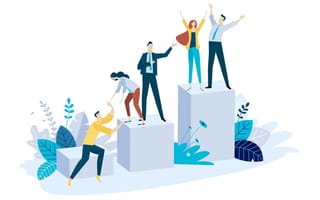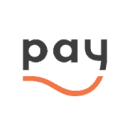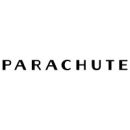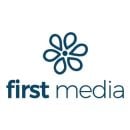Remember the ominous feeling of getting called into the principal’s office?
The sense of foreboding. The lump in your chest. The chorus of Ooooooohs ringing throughout the classroom.
These days, that feeling of dread comes courtesy of spontaneous entreaties:
“We need to talk.”
“Call me when you get this.”
“You’ve gone too long without taking a vacation.”
Some impromptu messages, it turns out, are interactions worth celebrating.
“At Edify, a quarterly PTO report is run to identify which employees have not taken PTO within that given quarter,” said Julia Magdelino, a people operations manager at the Los Angeles-based software company. “Should you be one of the dedicated employees who falls on that list, you will find an email from our people operations manager in your inbox, with your supervisor CC’d, noting your hard work and encouraging a well-deserved break.”
In light of recent workforce shakeups, it’s no wonder companies are placing a greater emphasis on work-life balance when pursuing top talent. That’s why Built In LA connected with 10 local industry leaders to learn how their people-first approach has led to a more productive workforce while making time away from the office a priority.

What steps has your company taken to foster a people-first culture?
Perks like unlimited vacation, wellness events, multiple employee resource groups and our popular Boingo Bonus Program are just some of the ways Boingo is dedicated to cultivating a people-first culture. There’s a reason why Boingoites continually refer others to join our teams and why many are celebrating five-year, 10-year and 15-year work anniversaries.
People need to recharge, and we trust them to organize their work life in a way that supports their own health and wellness while keeping the company moving forward. Wellness events like virtual sound baths, a healthy cooking series and chair yoga for your home office also keep the employees’ wellness in mind.
Additionally, our Boingo Unity ERG focuses on issues of race and diversity in the workforce and larger community. The ERG known as Boingo Women, meanwhile, features speakers who discuss how to advance your career, and our Boingo Veterans group celebrates the contributions of those who have served in the field and in the office. The goal of Boingo’s ERGs is to help make sure that everyone feels supported and has a sense of belonging.
What offerings help support a people-first company culture?
Leadership and HR routinely communicate that employee health and safety come first, and that includes mental health. We recognize that the pandemic has been hard on all of us. We don’t expect or encourage remote employees to be logged on all day, every day. We have a creative, engaged workforce that is efficient with its time in order to meet business goals.
We engage, we ask, and we listen.”
How do you gauge the effectiveness of these efforts and ensure employees feel valued and supported?
We engage, we ask, and we listen. One example is the Los Angeles Business Journal’s “Best Places to Work” survey, which has led to Boingo being named one of the Best Places to Work.
It also gives us a lot of valuable information about what policies are working for people. For example, when the survey results indicated that many team members were craving more training, we made an investment in that and rolled out a variety of employee resources across the organization, including on topics such as leadership, technical support, communication and team building.

What steps has your company taken to foster a people-first culture?
It’s often said that offering unlimited PTO is a double-edged sword, but that hasn’t been the case at Edify. Not only do we offer unlimited PTO — we actively encourage our staff to use it.
This practice began during the pandemic, as we quickly found that working from home left our staff feeling as if requesting PTO may be unnecessary or unwarranted. Edify not only recognizes the importance of disconnecting from work for our mental health, but actively ensures that our employees dedicate time to unplugging. With that being said, Edify was fortunate to have already established a culture of open communication that has an ability to flex with our hybrid staff, making our various workplace adaptations occur easily, all while keeping the safety of our Edifurians front of mind.
Not only do we offer unlimited PTO — we actively encourage our staff to use it.”
What offerings help support a people-first company culture?
Since its launch, Edify has continually monitored and evaluated the satisfaction of our employees, primarily through internal workplace satisfaction surveys. Last quarter, we implemented “flex fridays,” a scheduling perk that gives employees the freedom to schedule their weeks in a way that allows for full control of their Fridays. Whether they choose to work a full day, manage their time into a four-day workweek or something in between, no two Fridays are the same. This builds on our already flexible telecommuting options, which have proven especially beneficial throughout the ever-changing pandemic.
Most recently, we added free access to UrbanSitter to our already robust benefits package, along with a yearly stipend for all employees. With this, Edifurians gain access to nannies, babysitters, pet sitters, elderly care and even household cleaning services.
How do you gauge the effectiveness of these efforts and ensure employees feel valued and supported?
The first six months are crucial for a new employee and can be overwhelming as they adapt to training, learning curves and company culture. People operations meets with new employees at the one-, three- and six-month mark to check in on their perks and benefits usage, address questions and concerns, and encourage usage of everything we have to offer. This also works to establish each employee’s relationship with people operations as an open and available resource for them.
Beyond six months, “Everyday Edifications” is a small gamification program that highlights a select perk, benefit or program Edify offers and provides content on taking advantage of it. Participants who answer our trivia question related to the topic are entered into a prize drawing. And, of course, we perform two employee satisfaction surveys per year — each short, sweet and including a specific and relevant topic for feedback. As we continue to grow, Edify has continually evolved with the needs of our teams, and we have shown it quarter by quarter with consistent adjustments to our offerings and the amazing people-first culture our leadership has established.

What steps has your company taken to foster a people-first culture?
We want to create a culture at Papaya that embodies our mission, which is to alleviate the stress of bill payment for everyday American families. In our hiring practices, we seek out world-class talent that is also aligned to our mission and appreciates its importance.
Another key aspect of creating a people-first culture is to show employees that they are cared for not only as an employee, but as a person. They should feel appreciated, respected and experience a sense of belonging. At Papaya, we do this by providing all of our employees with a flexible, collaborative and fully remote work environment.
A recent example of this was when an employee was left without childcare for 10 days due to their daycare shutting down in response to a Covid-19 exposure. By having the ability to work flexible hours and access to a supportive team, the employee managed without childcare without having to take that whole time off.
They should feel appreciated, respected and experience a sense of belonging.”
What offerings help support a people-first company culture?
Benefits like unlimited PTO, flexible work hours and generous parental leave, which allow employees to have a better work-life balance, support a people-first culture. At Papaya, we also have a program called Papaya Talks, where employees have the opportunity to showcase their passion and talents to the whole company. Topics have included beekeeping and 3D printing.
How do you gauge the effectiveness of these efforts and ensure employees feel valued and supported?
Open communication is an important way to gauge how employees are feeling within a company. Managers make a point to have one-on-one meetings with their team members regularly, and we have anonymous surveys to encourage honest feedback and biweekly companywide all-hands meetings where leadership shares updates and everyone is welcome to ask questions. This enables transparency within the company and a genuine sense of trust across the team.
What steps has your company taken to foster a people-first culture?
We are proud to have a culture of ongoing feedback here at Parachute. Through semiannual culture surveys and biweekly sentiment check-ins via our performance management platform, we’re able to get a sense of how our team is feeling while also giving them an opportunity to provide suggestions or comments on their employee experience and journey. Based on the feedback from the team, we find ways to take meaningful and productive action. Our people drive our culture, so it’s important for us to consistently keep an authentic feedback loop in place.
Our people drive our culture, so it’s important for us to consistently keep an authentic feedback loop in place.”
What offerings help support a people-first company culture?
Through feedback, we’ve been able to develop and implement several offerings for all of our full-time retail and HQ employees. To increase transparency companywide, we have weekly Monday check-ins hosted by our founder and CEO, Ariel Kaye, which allow us to kick off the workweek together. We’ll share team wins, company updates and even an employee spotlight where Ariel will engage in a fun Q&A with a team member. During monthly all-hands meetings, we outline goals, wins, and sneak peeks into upcoming product launches and provide an overall update into how we’re doing as a company. These insightful companywide meetings get us ramped up for the weeks and months ahead. We also have a monthly fireside chat, born as a result of a past culture survey, where we feature a leader at the company. They’ll go over their role, team, objectives and career journey, followed by a Q&A with our employees. In addition to these companywide events, we also host virtual meditation classes to promote health and wellness as well as diversity, equity and inclusion-related events, such as educational speakers for Juneteenth and a virtual movie screening for Pride Month.
How do you gauge the effectiveness of these efforts and ensure employees feel valued and supported?
Having a feedback loop and listening to our employees with empathy help us learn, grow and find new ways to improve the employee experience. To ensure that our employees feel supported and show that their feedback is valued, we identify areas in our culture survey results and check-ins that we’re doing great at, as well as areas that need improvement. We then address our team’s responses with action plans and solutions. In terms of our fireside chats, for example, we learned that our team loved hearing about leaders’ roles, but we discovered that hearing about their career journeys was even more impactful. As a result, we steered the conversation toward how the leader got to where they are, what they learned and advice they have in order to continue inspiring the team.

What steps has your company taken to foster a people-first culture?
First Media had an incredible year of growth in 2021 in every way. We embraced the fact that employees are the most important focus in our company, and we committed to expanding our competitive offerings, engaging more with our staff and asking them for their feedback and input.
We’re proud of how we grew the size and impact of our diversity, inclusion and belonging committee, and we raised the levels of representation in every category. We value the relationship we have with our staff, and we ensure that we’re offering work-life balance, remote work opportunities for many roles, competitive compensation and benefits, and improved employee performance review and recognition processes that offer elevated communication and goal-setting for career growth.
What offerings help support a people-first company culture?
We have many opportunities for employees to engage virtually in our largely remote hybrid-work environment. For example we host a book club, movie club, adventure club and other virtual employee events like happy hours, team-building activities and more. We also bring everyone together in a monthly all-staff meeting where we share company updates and showcase various departments, highlighting teams and individual employees’ amazing work and important milestones across the company.
Our benefit package includes unlimited PTO, two months of new parent paid leave, 401(k) matching, life insurance, an employee assistance program, and a robust health insurance package with medical, dental and vision.
Our onsite staff — those who work together in our offices for production purposes — enjoy daily catered meals, snacks and free parking.
We show the employees — with our actions — that we see and hear them, making changes accordingly.”
How do you gauge the effectiveness of these efforts and ensure employees feel valued and supported?
We listen! Members of the leadership team make themselves available for one-on-one meetings, and we in people operations do so, too, ensuring that each employee is met with individually on a regular basis. We send out surveys to capture employee engagement and satisfaction scores, and we show the employees — with our actions — that we see and hear them, making any changes accordingly. We solicit feedback from staff, including through a social committee with one representative from each department who meets monthly with the people operations team to offer feedback from their team and to contribute their ideas to potential company events, training, operations tools and processes. We can gauge our success in our retention metrics, employer review scores and by the number of employees who are actively recommending people they know to work for First Media.
What steps has your company taken to foster a people-first culture?
SEER Interactive fosters a people-first culture by constantly looking for new ways to support our team’s ever-changing needs. Especially in the past two years with the pandemic, folks needed support in different ways than they had before. Before the pandemic, we had a lot of in-office perks, such as catered lunches, dog-friendly offices and work-hour flexibility. Since Covid-19, our team has all been working from home. They no longer need support in that way, so we pivoted our strategy to meet folks where they are. We expanded our benefits to include additional mental health support, including free coaching and therapy sessions for the team, offered Covid-19 relief stipends for family members who lost their jobs, and doubled down on our unlimited PTO benefits by setting a minimum amount of time off at three weeks. At SEER, a people-first culture means understanding your people, and then supporting them where they need it most.
A people-first culture means understanding your people, and then supporting them where they need it most.”
What offerings help support a people-first company culture?
We offer Kaizen budgeting to every employee to focus on growth and personal and professional development. Folks can use it for online courses, college tuition reimbursement, books or a gym membership — whatever helps them become the best version of themselves. We also offer an additional health reimbursement arrangement that focuses on costs that may not be covered by our medical insurance, even though we also cover more than 70 percent of an employee’s medical deductible if they enroll in our plans. We also offer a student loan program, where each month we’ll give out $3,000 to help a team member pay down their educational debt. These are just a few examples, but our intent with all of them is the same: to help support our team the best we can.
How do you gauge the effectiveness of these efforts and ensure employees feel valued and supported?
We collect a lot of feedback and data from our team. First, we conduct an employee engagement survey twice a year, which helps us understand our baseline engagement, strengths and areas of growth. We also conduct our own internal surveys to understand which benefits are working for the team. Once we know where the challenges are, we pivot. One example is recognizing that, while our benefits were robust, everyone has different needs. Given the challenges our parents have faced with childcare during the pandemic and the growing number of SEER families, this was an area we could improve our benefits. This year, we rolled out a “define your own budget” concept. Every team member has the option to determine how much SEER contributes to their budgets based on their needs. They determine the amount allotted to childcare, growth and professional development or health and wellness. Not everyone’s needs are the same, and this is one way we can be flexible for our team.
What steps has your company taken to foster a people-first culture?
VideoAmp strives to make everyone’s time with the company a pivotal highlight of their career. We empower each person to take ownership of their path, feel fulfilled and enjoy their work, and add more value for every client. We continue to challenge the traditional workplace experience in search of a better way. One key to this success has been ensuring our new hires feel fully ingrained in our business in order to better realize the impact they can have at the organization and value they deliver for customers. At the end of 2021, we launched our VIP EX program, which stands for the VideoAmp immersion program experience. We feel this is integral to setting new Vampers up for success by giving them a crash course on the history of the company and where we are going and providing them with in-the-moment opportunities to build their own career path and define their successes through our “project accelerate” program. Whether your career path unfolds at VideoAmp or your plans carry you outside of the company, we are committed to being an impactful part of your journey.
We put a huge emphasis on personal development, both in and out of the workplace.”
What offerings help support a people-first company culture?
We value growing exponentially, and this undoubtedly stands out as a distinct perk for our workforce. We put a huge emphasis on personal development, both in and out of the workplace, aiming to make VideoAmp the greatest career chapter of every employee’s life. At VideoAmp, you sit in the driver’s seat to create your own career path and bring it to life. Our philosophy is centered around a Vamper’s ability to be authentic, vulnerable and clear by designing their own success profile: a description of what success looks like in their role, what helps them thrive and what competencies allow them to do their best work and set them up for success in the long term. Every six months, Vampers reflect on what makes them happy, their performance results and their ability to live the VideoAmp values. We aim to take care of the whole person, with perks that eliminate negative stress and fuel well-being. We provide guidance for financial growth, including free access to financial advisors, unique childcare benefits and a yearly vacation stipend to accompany our unlimited PTO policy, which allows our people to make time for extreme adventure and recovery with those they care about most.
How do you gauge the effectiveness of these efforts and ensure employees feel valued and supported?
It’s important for us to gauge the success of what we do to support our Vampers. Part of our feedback loop is to provide biannual opportunities to give upward feedback through our people, culture and climate survey, in addition to regular focus groups. We believe that how team members feel about an organization is fluid. Through our surveys, we assess the culture — the collective feeling Vampers have about their ongoing experiences at VideoAmp — and the climate: the internal or external factors that might affect employee sentiments at any given period of time in their lifecycle. Being a people-first culture means we are not one size fits all. In addition to identifying companywide success factors, we also empower our people leaders and individuals to drive engagement on their teams and for themselves.
What steps has your company taken to foster a people-first culture?
At Who Gives a Crap, we are actively committed to ensuring we provide a safe, supportive and inspiring environment for our team.
To give a crap means truly considering ways to have a positive impact. It’s not enough to make big, bold statements; we have to be able to follow through with tactical action. To do that, we must capture different perspectives. We also actively encourage two-way feedback and open communication across our business to help us get a real-time view on what is and isn’t working.
One of the ways we have improved collaboration and communication was forming our diversity, equity and inclusion council. We have representatives across all hubs, functions, tenure groups and role types who come together to drive our DEI strategy and also lead tactical initiatives companywide. Two things I’m personally grateful for have been our DEI suggestion box to help us improve how we work and a companywide anonymous questions channel. Both of these examples provide volume to those who may find it hard to speak up, and they also ensure no observations or questions are off limits.
What offerings help support a people-first company culture?
Life-work balance is a big one for us. We believe that, to be our best, life needs to come before work. In the height of the pandemic, we acted with urgency and gave the whole business an extra week of leave, taking it off at the same time. We found this really effective, as the team could fully switch off knowing their colleagues were also offline.
After this moment, we recognized there was an opportunity to make leave more equitable and accessible, and we wanted to unlock true flexibility that allowed our team to take care of what’s important for them. We launched a new leave type called “life leave,” which is ultra flexible paid time off with no questions asked.
We’ve encouraged the team to be more proactive about their health and well-being through resources such as rest and refresh days, mental health days, and taking time off to care for family, if they’ve been affected by climate change or an emergency, or to recover from gender-affirming surgeries, for example.
We’re also remote-first, with highly flexible work schedules, allowing the team to prioritize their life outside of work.
We wanted to unlock true flexibility that allowed our team to take care of what’s important for them.”
How do you gauge the effectiveness of these efforts and ensure employees feel valued and supported?
In the world of HR metrics, we’ve essentially tipped a lot of them upside down. Once upon a time, seeing personal and sick leave balances being used up was a bad thing; it was often seen as a sign of a disengaged workforce and underutilized team capacity. Now, we celebrate as we see the average hours of personal and life leave being used — it tells us our team feels confident and supported to take time off. We have team members working remotely across the United States, Australia, the Philippines, Europe and China, and we keep an eye on how leave is taken across all hubs.
What’s also been great is seeing the real-time response from our team. If a team member says they can’t make a meeting because they have a family commitment, I see colleagues congratulate them for putting up boundaries and offering to take notes or get a recording instead.
We’re constantly evolving our strategy and the benefits we offer, as well as the ways we provide access to those benefits to our team. I’m grateful for the ongoing feedback and suggestions we get from the whole team. When it comes to our culture, every single employee has stepped up to support how we evolve our benefits.
What steps has your company taken to foster a people-first culture?
We believe that people-first policies and programs are not only fun and engaging for employees, but great for the business. To ensure all employees feel welcome and prepared to be successful, we created an employee foundational program called NEX — new employee experience — as well as an assigned mentor program.
NEX is a three-day immersive program that introduces all employees to our culture and values while ensuring each new hire has baseline knowledge about our business operations and product offerings. Employees across Tebra — formally known as Kareo — come together to deliver 20 presentations to our new hires to discuss each department, and we do product demos so they can see what we do. We discuss Tebra’s culture and history to help new hires understand who we are and where we’ve come from. Ultimately, our goal is to give employees the training and tools they need to be successful. We believe that engaging all new hires through an immersive onboarding experience will help them feel connected to our company, develop strong relationships and start their Tebra experience off on the right foot.
Our goal is to give employees the training and tools they need to be successful.”
What offerings help support a people-first company culture?
Tebra sponsors employee resource groups to enhance and foster an inclusive workplace focused on welcoming, supporting and celebrating what makes our employees unique. Our ERGs are a vital component of Tebra’s overall diversity, equity and inclusion strategy. Our current ERGs are: WRG at Tebra, which is a women’s resource group; Pride at Tebra, which supports LGBTQIA+ team members; Latinx at Tebra; AHA at Tebra, which provides Asian heritage advocacy; and coming soon: Noir at Tebra.
ERGs are an excellent resource for employees looking for additional learning and development opportunities outside of their current role. Planning events, facilitating discussions, organizing speakers, mentoring other members, building new relationships, and collaborating with teammates and executive sponsors are just a few of the responsibilities resource group members can be involved with. Our ERGs have adapted to the virtual environment and have held panel discussions, coffee chats and other events throughout the year to continue collaboration with others.
How do you gauge the effectiveness of these efforts and ensure employees feel valued and supported?
We operate from a growth perspective at Tebra. We believe success comes from a strong work ethic and that feedback is an opportunity to grow and improve. When launching NEX, we knew that we worked really hard to craft an amazing new-employee orientation program, but it would be important to gather feedback to determine if the program was doing what we intended it to and new employees felt valued and supported. The result of that is a comprehensive assessment that all new hires complete.
Our employees report extremely high levels of understanding surrounding company culture, history, what success looks like and how our products fit into the market. They directly report how much they enjoy getting to know their peers; employees appreciate being introduced to leaders across the organization and love that we have an empathetic company culture that is positive and thoughtful. Through the assessment results, we delivered guidance and coaching to NEX facilitators, and we shifted the schedule to be more thoughtful.
What steps has your company taken to foster a people-first culture?
At Output, putting our people first means recognizing that everyone has lives outside of work and doing everything we can to support what happens outside of work hours. We want to encourage healthy and balanced lives, whether you are at work or not. Our CEO, Gregg Lehrman, sets a great example for us in the way he lives and does everything he can to encourage others on their own path. A perfect illustration of this occurred at the end of 2021, when Gregg gifted every employee an Oura Ring to help them in their health journey heading into 2022. We believe in employees living well-rounded and holistic lives, whether that means having time to make music, exercise, sleep or take part in whatever activities helps an individual reset before returning to work.
The time someone spends away from work makes them happier and more productive at work.”
What offerings help support a people-first company culture?
We strongly believe that the time someone spends away from work makes them happier and more productive at work. Our policies, perks and benefits are direct reflections of this belief. We have a generous five weeks of PTO that our employees take full advantage of. One of those weeks is a full company shutdown between Christmas and New Year’s. Currently, we also have nine days of paid holiday time. One of the other perks Output employees love is that we shut down at 3 p.m. the day before a holiday in an effort to let people start their time off a little bit earlier. We also provide unlimited sick days, as we believe that when you’re sick you should focus on getting better, not work.
Lastly, we recognize that everyone has different prime hours when they are most effective. We do not dictate the hours in which someone needs to work. We provide the autonomy and flexibility for Output employees to decide when they work best while still upholding their responsibilities to collaborate with others.
How do you gauge the effectiveness of these efforts and ensure employees feel valued and supported?
Output’s leadership team believes firmly in open lines of communication. At the end of our biweekly company meetings, we have time set aside for any questions employees want to ask. The recent revamp of our all-company meeting was a direct response to feedback from employees that they weren’t getting what they needed out of it. Our executive team also hosts open office hours for anyone who wants to come talk about any subject. Numerous initiatives, including an audit of our 401(k) program, came directly from these office hour conversations.
Additionally, everyone at Output has a direct line to our CEO. Gregg will meet with anyone and everyone. All Output employees are given the chance to provide him a performance review, and he reads every comment submitted in an effort to address the concerns.
Having moved to a fully remote workforce over the past two years has been a challenge. But one strategic move that we made based on feedback from our employees was to incorporate as many non-work-related opportunities for people to connect as possible. This has resulted in new and stronger relationships across departments.























